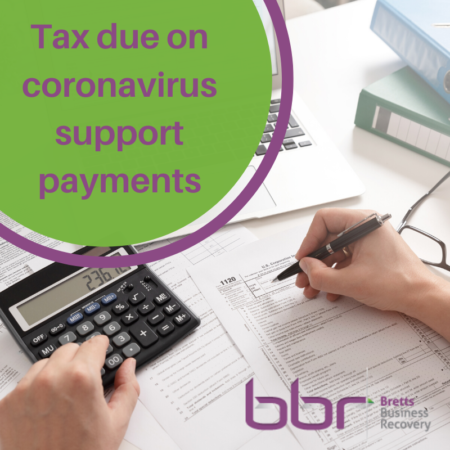Tax due on coronavirus support payments

Provisions added to Finance Bill ensure funds received through coronavirus business support schemes are included as revenue for income tax and corporation tax purposes.
Recent amendments were made to the Finance Bill which is currently being fast-tracked through Parliament and is expected to become law in early July 2020.
Tax on business support
The new provisions ensure that grants made under the Coronavirus Job Retention Scheme (CJRS), Self-employed income support scheme (SEISS) and the Coronavirus Statutory Sick Pay scheme (CSSPS) and other COVID-19 business-supporting grant schemes, are within the scope of tax as income and will therefore be chargeable to tax. This will enable the Government to recover some of the cost of its extensive business bailout measures.*
Recovery
The provisions also provide HM Revenue and Customs (HMRC) with additional compliance and enforcement powers in relation to the CJRS and SEISS and will enable HMRC to claw back funds claimed in error or fraudulently in respect of CJRS.
HMRC will be able to recover payments to which the recipient is not entitled via a 100% tax applied to ‘anyone who has received a payment under the Schemes to which they are not entitled or anyone who has not used a CJRS payment to pay employment costs’.
Penalties for non-compliance and fraud
HMRC will also charge a penalty in cases of deliberate non-compliance or failure to report errors. The draft legislation does not detail the scope of penalties but, under the legislation, businesses that are liable to repay a grant to which they are not entitled must notify HMRC within 90 days of the act being passed or the date on which the charge arises, whichever is the later.
Joint and several liability of directors
Where a company becomes insolvent, and a clawback of a support payments is identified by HMRC, the former officers or directors of the business will have joint and several liability for the amount to be recovered.
The provisions are designed recoup funds claimed fraudulently. HMRC reported that it had received almost 1,900 reports of fraudulent use of its furlough scheme to its digital reporting service by the end of May.
* The Office for Budget Responsibility (OBR) estimates that schemes to support public services, businesses and individuals will cost the UK around £132bn. (http://obr.uk/coronavirus-analysis/).